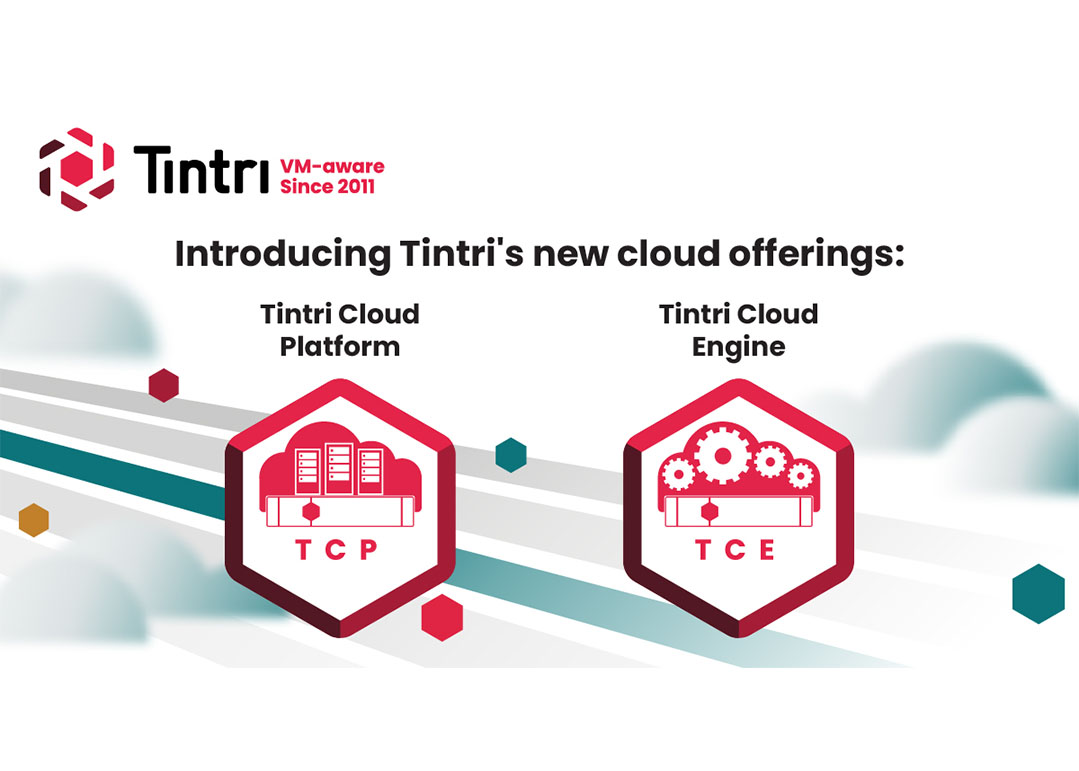Cloud
Cloud
News
Arelion announces access to Oracle Cloud Infrastructure via FastConnect
Arelion has announced it will offer direct connectivity to Oracle Cloud Infrastructure (OCI) via OCI FastConnect in the new Oracle Cloud Monterrey region in Mexico. The new cloud region enables its customers to harness the power of OCI locally and leverage its offerings and services, including Oracle Autonomous Database, to unlock innovation and drive business growth.
Arelion provides connectivity to OCI via Oracle’s first cloud region in Querétaro, and through its continued collaboration, the global internet carrier will provide secure, dedicated and scalable connectivity to OCI globally via the new Monterrey region. With OCI, customers benefit from best-in-class security, consistent high performance, simple and predictable pricing, and the tools and expertise needed to bring enterprise workloads to cloud quickly and efficiently.
Other key insights about Arelion’s support for the Oracle Cloud Monterrey region include:
Arelion Cloud Connect will provide customers with self-provisioned, flexible, and scalable private network connectivity to OCI FastConnect locations at speeds of one, two, five or 10GB/s over its global internet backbone. It enables customer connection to multiple OCI on-ramps for increased resilience and control over customers’ cloud networks. This will support the increasing customer demand in Monterrey and throughout Mexico for quality, low-latency connectivity to global cloud services.
Via OCI FastConnect, it will provide customers throughout Mexico with access to a wide range of applications and infrastructure services through an elastic, resilient connection, featuring higher bandwidth, lower latency, and more consistent performance versus public internet-based connections.
Monterrey is a diverse industrial hub strategically located near the US, where many international companies have established operations through nearshoring investments, including significant investment from Tesla. Monterrey’s major market verticals include financial services, manufacturing, automotive, IT services and higher education. The city is a hotbed for tech innovation, ranking as one of Mexico’s top ten markets for tech talent.
Arelion is one of the global internet carriers to support Mexico's international market growth after 2013 market reforms. Its collaborations with key partners have resulted in nine Points of Presence (PoPs) in Mexico, including data centres in Querétaro, Guadalajara, Monterrey, Merida, Mexico City, and San Luis Potosi, as well as in US markets serving Mexico, including El Paso, Laredo, McAllen, and San Diego.
OCI’s extensive network of more than 90 FastConnect global and regional partners offer customers dedicated connectivity to Oracle Cloud Regions and OCI services.
Isha Jain - 7 November 2023
Cloud
News
Nutanix appoints its first cloud economist for Australia and New Zealand
Nutanix has appointed Shree Balachandran to the newly created position of Australia and New Zealand (A/NZ) Cloud Economist. The industry veteran will work closely with the local Nutanix leadership and sales team, as well as the partner community, to help organisations achieve greater value in its cloud environments.
Shree Balachandran is based in Melbourne and brings more than 25 years of strategy, sales, and operations experience from leading technology companies such as HPE and Oracle. He says that cloud economics is front of mind, as companies retreat from ‘all-in’ strategies and cloud costs including ingress and egress (transferring data in and out from an environment) continue to soar.
“Many companies in Australia and New Zealand that said a few years ago, ‘we’re putting it all in public cloud’, hit a crossroads at about 15% of their data, where going any further is either impossible or prohibitively expensive,” says Shree Balachandran.
“This has crystalised the idea of hybrid multicloud strategies as the way forward, but many are still unsure of how to get there, what data and applications should sit where and for how long, and where they should focus their investments. Nutanix is building the blueprint for how they can do this and I’m looking forward to helping the company educate the market and execute on its vision.”
Shree Balachandran’s appointment comes as Australian companies are expected to spend $19.9bn, and New Zealand companies $3bn, on cloud services this year alone. It also follows Microsoft, which partners with Nutanix on its Clusters (NC2) hybrid cloud platform, announcing it would invest $5bn to expand its hyperscale cloud and AI infrastructure in Australia.
“There’s no one-size-fits-all, but if your environment has too much legacy on-premises infrastructure, you’re losing out. If you have too much public cloud and no system in place to make your data interoperable between different clouds, you’re losing out. Without applying an economic lens to cloud spend, costs will soar – particularly as data grows and grows and intensive applications like AI take hold,” he continues.
Cloud economics to drive IT sustainability
According to Shree Balachandran, sustainability is starting to become a major factor in IT decisions, as organisations across respond to government initiatives such as the Australian Federal Government’s Net Zero Authority, and New Zealand publishing guidelines encouraging agencies and enterprises to consider sustainability in cloud procurement.
“We’ve seen in other regions that when legislation and guidelines come in, organisations start asking different questions when they buy ICT services. That’s starting to happen now in A/NZ and it’s evident in the conversations Nutanix is having with end users and partners,” he says.
“As IT budgets remain under pressure, we need to find ways to be more sustainable by maintaining – or ideally lowering – costs, and cloud economics is an ideal discipline to achieve that.”
Shree Balachandran joins a team of Nutanix cloud economists who have been appointed around the world as the company puts a major emphasis on improving customers’ cloud’s value on their balance sheet.
Damien McDade, Managing Director, Nutanix A/NZ, says that the importance of cloud economics and Balachandran’s experience is timely, “Shree brings a wealth of experience and will be an invaluable financial resource for our customers and partners."
“This role speaks to the core of concerns A/NZ CIOs, CFOs and others have as they seek to get to the next stages of business transformation, while making good on the sizable investments they’ve already made in cloud computing. We know Nutanix is vital to that equation and our focus on, and investment in, cloud economics is testament to that.”
Isha Jain - 6 November 2023
Cloud
Data Centres
News
Spirent and Cadence bring advanced chipset testing to pre-silicon verification
Spirent Communications has announced a collaboration with Cadence Design Systems, to deliver a joint networking system-on-chip (SoC) verification solution that bridges the gap between pre-silicon and post-silicon verification.
The collaboration brings sophisticated virtual Ethernet traffic emulation and testing capabilities to pre-silicon verification in the Cadence Palladium Z2 Enterprise Emulation and Protium X2 Enterprise Prototyping systems. Highly scalable and flexible, the solution has the capacity to emulate any port speed from 1G to 800G at the application level, and quickly introduce additional features to enable new use cases as required.
Jointly developed, the solution is designed to enable the increasing data bandwidths needed to verify designs for data centres and other high-performance applications. The partnership combines the data rates and port densities of Spirent TestCenter, with verification capabilities of the Cadence Palladium and Protium systems as a unified solution with reusable, portable, automated test cases.
Unique benefits of the joint solution include:
Effective, efficient testing for pre-silicon validation from 1G to 800G for application-level testing
Comprehensive integration of the test application and emulation environment without the need for external test hardware
Cost savings from identifying and fixing issues in early-stage chip design
A unified test platform that bridges gaps between pre- and post-silicon verification, enabling continuity of testing from the earliest phases of product development through customer deployment
Capability to test all phases of silicon product lifecycle, time-saving application re-utilisation, implementation of standard metrics for more effective measurement and result analysis, and easy integration into CI/CD workflows,
Acceleration of the entire silicon development lifecycle
Download the Spirent Chip Design Verification Solution datasheet.
Isha Jain - 1 November 2023
Cloud
VMware Cross-Cloud services now on Oracle Cloud Marketplace
VMware has announced that VMware Cross-Cloud services are available to customers through the Oracle Cloud Marketplace. VMware customers can take advantage of Oracle Cloud Infrastructure (OCI) with VMware Cross-Cloud services to migrate and operate applications on OCI more efficiently, innovate faster and improve resiliency.
Oracle Cloud Marketplace is a one-stop shop for Oracle customers seeking trusted business applications and services offering unique solutions, including ones that extend Oracle Fusion Cloud applications.
VMware Cross-Cloud services is a family of multi-cloud services customers can use to build, run, and manage applications on OCI. Organisations can now use their existing Oracle Universal Credits to consume the services through private offers to modernise their mission-critical enterprise apps on OCI. For customers, this offers a quicker and painless path to the cloud. The services are available immediately:
VMware Tanzu: A modular application platform for developing, operating and optimising modern apps on multi-cloud infrastructure. Tanzu offerings currently available in the marketplace include VMware Tanzu Mission Control Self-Managed, VMware Tanzu Kubernetes Grid and VMware Tanzu Application Service.
VMware Aria: A multi-cloud management portfolio that provides a set of end-to-end solutions for managing the cost, performance, configuration and delivery of infrastructure and applications. Aria offerings currently available in the marketplace include VMware Aria Universal Suite and VMware Aria Operations for Networks.
VMware Site Recovery Manager (SRM): An on-demand disaster recovery-as-a-service solution that protects critical data and apps while delivering cloud flexibility and economics.
OCI is a deep and broad platform of cloud infrastructure services that enables customers to build and run a wide range of applications in a scalable, secure, highly available and high-performance environment. From application development and business analytics to data management, integration, security, AI, and infrastructure services including Kubernetes and VMware, it delivers comprehensive security, performance and cost savings. In addition with multi-cloud, hybrid cloud, public cloud and dedicated cloud options, OCI’s distributed cloud offers customers the benefits of cloud with greater control over data residency, locality, and authority, even across multiple clouds. As a result, customers can bring enterprise workloads to the cloud quickly and efficiently, while meeting the strictest regulatory compliance requirements.
Isha Jain - 30 October 2023
Cloud
Data Centres
News
Gcore and Ampere to provide high-performance cloud solutions
Gcore has announced its collaboration with Ampere. The collaboration brings together Gcore's cloud infrastructure expertise with Ampere's innovative 128-core processors based on the ARM architecture and optimised for cloud workloads.
Gcore virtual machines (VMs) now support configurations based on the Ampere Altra processor family, a cloud-native processor that delivers predictable high performance, linear scalability, and power efficiency for data centre deployments, from hyperscale cloud to edge cloud. Ampere's processors offer high core counts, allowing for efficient parallel processing of workloads.
A performance comparison of Ampere, Intel, and AMD processors on a single node running typical workloads shows that Ampere is on average faster than Intel Xeon third Gen and AMD EPYC third Gen.
Gcore VMs are hosted on HPE ProLiant RL300 Gen11 servers, which are equipped with Ampere Altra processors. This is the server designed specifically for providers and digital-first enterprises that need to deploy cloud applications.
The scalability of the Ampere Altra product family enables cloud providers and data centres to handle a large number of concurrent tasks and efficiently scale their infrastructure as demand increases. It is also cloud-optimised and helps to maximise overall performance and cores-per-rack density.
Ampere processors are based on the ARM architecture, which offers several advantages for cloud-native environments, including power efficiency, performance per watt, and support for heterogeneous workloads.
Isha Jain - 9 October 2023
Cloud
News
Cloud Industry Forum appoints Kaizo's Steph Macleod to the board
The Cloud Industry Forum (CIF) has announced that Steph MacLeod, Director and co-owner of Kaizo, has been appointed to the board.
Steph will play a pivotal role in supporting the rest of the board in shaping the future of cloud computing and driving CIF's mission to provide thought leadership, best practices, and advocacy for organisations embracing cloud technologies.
With her strong track record in communicating innovation within the technology sector, Steph is set to focus on amplifying CIF's initiatives and the membership’s vast intellectual capital, to address the range of challenges and opportunities today’s market presents – from emerging technology and macro-economic forces through to skills and diversity.
Steph brings nearly 30 years of communications consultancy experience to the table having represented a range of leading technology brands from HP and Apple to Tata Consultancy Services and NetSuite. Kaizo’s current technology portfolio includes brands such as BlackLine Expereo, ExpressVPN, Freshworks, Sharp, SnapLogic and Stack Overflow. Her work includes the development of global thought leadership campaigns, content and communications strategies.
Commenting on her appointment, Steph says, "I am truly honoured to join the Cloud Industry Forum as Director. Cloud technologies have revolutionised the way businesses operate, and I am excited to play a role in CIF's efforts in promoting the benefits and opportunities inherent in further and advanced adoption. I look forward to collaborating with industry leaders to talk about the issues that are most critical to the industry both today and in the future.”
Kaizo has also become a member of CIF as Steph commences her role.
Isha Jain - 2 October 2023
Cloud
Networking
News
Spirent unveils industry's first fully cloud-native solution
Spirent Communications has announced availability of the industry’s first fully cloud-native solution to help communication service providers (CSPs) and cloud-native network function (CNF) vendors ensure resilient 5G services.
An automated test platform, Spirent CloudSure evaluates and validates CNF resiliency within 5G networks with comprehensive testing capabilities to help ensure reliable service delivery, while reducing operational costs, and optimising customer experience.
“Cloud-native environments represent a revolutionary new technical approach that breaks a handful of highly reliable, vertically integrated 5G functions into thousands of individual software components that run on a cloud that is optimised for performance and cost, but not reliability,” says Glenn Chagnot, Senior Director of Product Management for Cloud Solutions at Spirent.
“Cloud-native marginalises traditional testing and visibility approaches, demanding completely new processes and tooling to realise the potential benefits. CloudSure provides proactive, pre-deployment validation to test 5G services with real-world traffic operating on an imperfect cloud to ensure services are resilient and always available in operations.”
CloudSure has been engineered to help network operators deliver robust and resilient 5G services to end users in the complex, highly dynamic, cloud-native world. It enables:
Reliable service delivery: Confirms 5G cloud-native network functions operate reliably under the most challenging cloud conditions for uninterrupted service delivery and long-term revenue growth.
Reduced operational costs: Optimises resource utilisation and validates complex fault recovery mechanisms to avoid costly outages, 5G service interruptions and reduce operating expenses.
Enhanced customer experience: Ensures resilient 5G service design, configuration and performance to deliver high-quality user experiences to improve customer satisfaction and retention.
Competitive advantage: Enables reliable, high-performing 5G services that meet customer expectations consistently, for a competitive edge in 5G and to attract new customers.
Isha Jain - 26 September 2023
Cloud
Data Centres
News
Product
Tintri announces two new cloud solutions
Tintri has announced two new offerings that will enable customers to leverage the advantages of a cloud infrastructure.
Tintri Cloud Platform (TCP) leverages the efficiency, transparency and flexibility that its customers rely on without the hardware investment.
Tintri Cloud Engine (TCE) is a container-driven VMstore platform that allows current customers to add a hybrid cloud deployment to their existing infrastructure.
Tintri Cloud Platform: Integration of VMstore environments
TCP enables customers to experience the benefits of its VMstore-powered managed cloud infrastructure. It is a full turnkey offering that provides scalability and flexibility, delivering host-in-cloud as well as process-in-cloud capabilities. It also offers Disaster Recovery-as-a-Service (DRaaS), ensuring continuity of critical workloads in the event of a disaster.
TCE virtual platform compliments VMstore T7000 Series in simple cloud deployment
Tintri Cloud Engine decouples with its AI-powered software from the VMstore T7000 hardware platform.
It provides customers with the flexibility to deploy its technologies outside of the private data centre. TCE is purpose-built for virtualised workloads, opening the door to new levels of infrastructure efficiency in hybrid cloud ecosystems.
Running in the cloud as a container, it provides enhanced data protection, enabling snapshots of on-prem workloads to be replicated to cloud-based storage, leveraging Tintri Native Async Replication. With TCE snapshot replication, customers leverage the cost-efficiencies of cloud storage while increasing disaster recovery capabilities and ransomware protection.
With the massive influx of data and mobile workforces over the past few years, there is a critical need to implement a more flexible and interconnected IT ecosystem to manage the size and complexity of applications. TCE is designed to address this shift in the IT market and will give users a complete view into their hybrid cloud needs.
Click here for more latest news.
Isha Jain - 22 September 2023
Cloud
News
Friction between finance and tech leaders disrupts cloud spend
Vertice has announced the results of its global survey, “The State of Cloud Cost Optimisation”, which reveals that organisations are being held back from controlling their cloud spending and gaining ROI, because of a lack of alignment between finance and tech leaders.
Amidst cloud costs rising by an average of 35% year on year, Vertice surveyed 600 senior finance and tech leaders in the US and UK, and found that, cutting cloud spending was the highest priority for finance leaders, with more than three quarters (78%) listing it among their top three cost-saving priorities and a third (33.5%) revealing it as their number one priority. Only 9% of technical leaders say reducing cloud costs is a top concern. Instead, four out of 10 say their priority is hiring skilled cloud employees.
The survey also reveals that, 55% of finance leaders blame a lack of transparency from tech leaders, with 44% saying they can’t get visibility of cloud costs. Adding to this misalignment, relationships with cloud hosting providers are highlighted as a major threat to cost efficiency, with 39% of finance leaders finding it difficult to negotiate costs because technical staff own relationships with cloud vendors.
Alarmingly, over half (55%) of tech leaders say tension is caused by non-technical staff lacking the knowledge or expertise to understand cloud infrastructure configurations. Moreover, 25% of tech bosses say that finance staff want to reduce cloud spending, but they don’t have the tech or engineering resources to focus on cloud optimisation.
Leaders of scale-ups were by far the most likely to report high levels of friction, reporting a higher average rating of tension (eight out of 10), than those working in startups (5.4/10) and midmarket-sized companies (6.6/10), and almost twice the intensity of friction than those working inside enterprise-sized organisations (4.3/10).
To help organisations tackle the challenge of spiralling cloud spending, Vertice has launched its Cloud Cost Optimization platform, which empowers businesses to cut cloud spend by as much as 25%. The company already helps customers save 20 - 30% on SaaS spend, and now, it has also designed the platform to solve the acute problems faced by finance and tech leaders trying to reduce cloud spend.
Vertice tracks cloud usage and spending in real-time in a unified dashboard for finance and tech, removing the barrier between teams and enabling finance leaders to accurately forecast and control spending. It uses automation to ease the burden on busy engineering teams and elevate every aspect of cloud cost optimisation by performing continuous tests to highlight where efficiencies and savings can be made with minimal engineering effort, as well as automatically managing cost-saving plans, known as Reserved Instance (RI) commitments.
The survey findings also show:
Different priorities between finance and tech:
Saving money on cloud was the highest priority among finance leaders, with more than three quarters (78%) of them listing it among their top three and a third (33.5%) revealing it as their number one cost-saving priority.
Share of finance leaders listing cost-saving initiatives in their top three priorities:
Cloud costs: 78%
Employee headcount/salaries: 75%
Software as a Service (SaaS) fees: 71%
Office space: 56%
Using AI to automate tasks: 23%
Only 9% of technical leaders say reducing cloud spending is a top priority. Tech decision-makers are most concerned with cloud recruitment, with four in 10 (40%) saying their key priority is hiring skilled cloud employees.
The misalignment between finance and tech:
There are 55% of finance and tech leaders that admit there is a transparency/knowledge gap that could threaten the potential of cloud investments and even hold back innovation.
An almost equal proportion of financial leaders (27%) and tech leaders (32%) say balancing innovation and cost is a key cause of friction between them.
FinOps strategy:
Nine in 10 businesses either already have, or desire to have, a FinOps strategy in place, but less than a third have done so successfully.
Struggling to find time for cloud cost optimisation:
Around 25% of tech leaders say that finance staff want to reduce cloud spending but they don’t have the tech/engineering resources to prioritise this.
Click here for more latest news.
Isha Jain - 22 September 2023
Cloud
News
Macquarie and VITG sign sovereign cloud deal
Macquarie Cloud Services, part of Macquarie Technology Group, has announced that it has expanded an agreement with Virtual IT Group (VITG) to provide secure private cloud services for its healthcare clients.
Headquartered in Illawarra, New South Wales, VITG provides managed network, infrastructure, applications, and security services to a range of sectors across Australia. It is a leading managed service provider (MSP) for the healthcare industry, which has some of the most stringent data security requirements of any sector.
To ensure it could enhance its leadership in the industry and satisfy the Australian Digital Health Agency’s recommendation for healthcare providers to keep data in Australia, VITG deployed Macquarie Cloud Services’ Launch private cloud. The company is the only in Australia to have both its cloud and data centre services certified at the ‘Strategic’ level under the government’s Hosting Certification Framework.
“Healthcare providers are increasingly sensitive to cyber security concerns, particularly given the major breaches we’ve seen in the past year and the fact that it remains the most targeted industry,” says Mark Farrell, Head of Security and Compliance at VITG.
“Clients constantly ask us about where their data is kept, how it’s secured, and where they might be exposed. Macquarie Cloud Services’ baked-in security, sovereignty, and expertise – particularly among its more-than 200NV1, government data security cleared personnel – make those questions very easy to answer.”
The deployment has seen Macquarie Cloud Services develop a customised private cloud for VITG in its Launch platform, built on Dell Technologies hardware, which includes security updates and patching, 24/7/365 support, monitoring, provision of insights, and alerts. It also migrated a huge volume of data from VITG’s self-managed data centre to Macquarie Data Centres’ sovereign facilities, with no disruption to workloads or customers.
VITG selected Macquarie Cloud Services primarily for its customer experience expertise, data sovereignty capabilities, and its ability to create customisable cloud environments. Mark says, the system is ideal for larger providers such as private hospitals, but that it can also provide affordable and scalable cloud to smaller GPs, physiotherapists, and more.
“Major private or public cloud deployments are often cost prohibitive and out of reach for smaller healthcare providers. But they’re bound by the same data protection requirements, so they need secure cloud. VITG and Macquarie Cloud Services make those services commercially viable, scalable, and secure, and we’ve had multiple requests to stand up more capacity which the team can instantly provide.”
Isha Jain - 21 September 2023

Head office & Accounts:
Suite 14, 6-8 Revenge Road, Lordswood
Kent ME5 8UD
T: +44 (0)1634 673163
F: +44 (0)1634 673173









